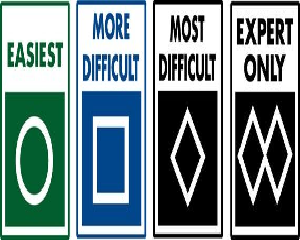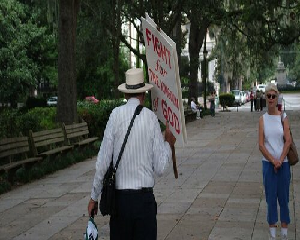WEED OUT DECEPTION

WEED OUT DECEPTION
Recently, I had an opportunity to have a discussion with a 21-year-old young lady and another colleague while driving to a job site. We were in the car for about 30 minutes.
I won’t identify the specific topic however, it was one that evoked a rather strong opinion from this 21-year-old. She defended her position by focusing on a very narrow slice of the bigger picture.
While living in different countries, states, and cultures; the factors that evoke individual opinions always fascinated me.
The beliefs a person holds are critically important because they form the lens by which one sees the world. “You don’t see the world as it is, you see it as you are.” Anaïs Nin’s quote caught my attention as an answer to a question that puzzled me when I was younger; “Why can’t they see it my way?”
The discussion evolving during our drive, typified the differences in our thinking. What were the foundations of those differences? This was not a right or wrong answer discussion, it was complex, just as most things to do with humans, culture, and customs are.
As our interactions commenced, it became apparent that some of the basis of her argument was information that was not checked. I call it “Hear-say.” Hitler stated, “If you tell a lie long enough, people will tend to believe it is the truth.” I had a hint that this was occurring during our travel.
Pilate asked Christ, “What is truth?” A question that is still relevant today. During our time in the car, we wrestled with concepts and searched for the basis of opinion, we experience a series of half-truths and modified deception.
By this I mean, that our beliefs, opinions, and understanding are based on information-input. In gathering the base of our belief foundation, we are very susceptible to deception. Misguiding information that leads us to predetermined suggested conclusions. Determining a reliable source of data is next to impossible.
Everyone you listen to whether on the media channels, conversations, or many of the other sources available are not objective. As my son clearly stated, “That is the job of media, to influence.”
Socrates had a student approach him with some gossip, before the student shared his information, he asked a few questions. It is credited to Socrates, the T.H.I.N.K, principle:
T Is what you are sharing True?
H Is it Helpful?
I Is it Instructive?
N Is it Necessary?
K Does it need to be Known?
To a certain extent this can be used as a criterion for filtering out dubious information. However, though this approach brings one to see the reasoning of an individual sharing information, it is not as useful for filtering information coming from multiple sources. But, it is a start.
Asking a provoking question, “Why is this information being provided?” This is another important aspect of seeking the truth.
It would be nice if we could generally trust all sources of knowledge and data. Deception occurs and has been a means to influence masses of people since the beginning of time. This is in our History books, memoirs, and autobiographies. The fast-paced media’s influence has been most recently label “False News” for good reasons. The label is accurate because it is being presented for a specific purpose. To influence your thinking and beliefs, but not because it is necessarily being true.
We all want truth. Truth is not a principle, defined entity, or a general applied criterion. It is a concept directed onto a specific situation or event.
Tossing a coin to find if it lands on heads or tails is seeking the truth. That is, if head shows that is the truth or if tail shows then that is the truth. As in most complex situations, there is a small probability that the coin could land on its edge. If it did, that would be the truth.
In the court of law, seeking the truth is based on procedures that have been established over years to accommodate the process of determining the truth. We all have experienced a verdict that left us doubting the legal system. The truth is often dependent on the finesse of the attorneys involved. Here is a prime example of how truth can be twisted or corrupted. Regardless of what the verdict is, there is a truth, despite of it prevailing or not.
Here are some suggestions on building your own filtering system to discover deception or lies:
- Carefully crafted wording is intended to drive you emotionally. If you hear something that affects your emotions, you can count that the information may be biased and intended to drive you to a conclusion suggested for you. Our emotions make us vulnerable therefore, we need control over them. Stop and take inventory of how and why you feel the way you do.
- Restate your account of what you heard. Before you take that information and integrate it your belief system, do a sanity check. Does this new information stand the THINK test? We are also vulnerable to be more open to information that justifies our predetermined ideas. This is human, but it is also a mechanism that fuels the division between truth and deception. One of the most difficult things is to be objective, that is why a filtering mechanism is important.
- Look for inconsistencies that could lead you to identifying influence or manipulation. There is a statement that I have used before, “A rising tide raises all ships.” If the information presented to you tears down any group to lift another one, then you can be certain that you are being manipulated. The only way to lift only some ships is to sink others. This is so clear. Setting one group against another is a ploy designed to confuse the issues. The great divide in our country is because this strategy has been implemented so often. What is good for you ought to be good for your neighbor whether he is you enemy or not. Somehow someone promoted the concept of “Zero net gain” into our social structure. That is, there is only so much out there and that something is in scarcity; fighting for it is necessary regardless of how ugly things get. This is a LIE. There are unlimited resources available to us. I do not have to take something from someone else to realize gain for myself.
- The self-proclaimed judges of humanity are those that dictate action from others, but in most cases exclude themselves. The exclusion of parties from the actual fight is devious and sinister at best. Beware of those that profess one thing but do not do it consistently within themselves. It is difficult to trust a chameleon’s color. Beware of single point issues that leave significant factors out of complex circumstances. This is a tool for manipulation.
- This last suggestion is imperative. There are suggestions by some that the previous atrocities perpetrated on specific groups need to be view differently with respect to the rule of law. We cannot undo wrongs done to previous generations. To believe that we are somehow responsible for our forefather’s actions is of devious intent. Those attempting to capitalize on this aspect are banking on anarchy. Rule of law is the only order we can count on. It is not perfect, but it has been developed over centuries and it works. Exceptions to the rule of law challenges order, it is a point to be understood and not tampered with. No one has a right to think they are above the law because they happen to belong to a group, nationality, race, or party.
These suggestions are far cry for totally isolating us from deceptions, lies, and manipulation. However, sticking out heads in the sand and believing everything that is fed to us through our current established bubble of belief, without questioning our foundational principles is recipe for having you turned into a tool for someone else.
This is a very true statement: “You either discipline yourself or someone else will discipline you.” The same is true for the responsibility of establishing your sound belief system: You either decide to seek the truth, or someone else will decide the truth for you.
Attila Horvath, author





